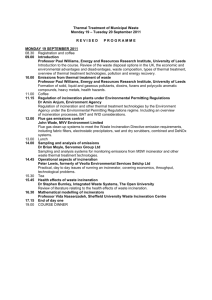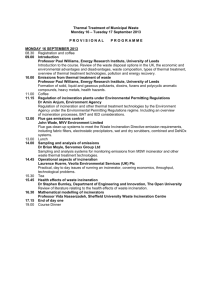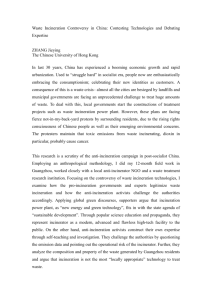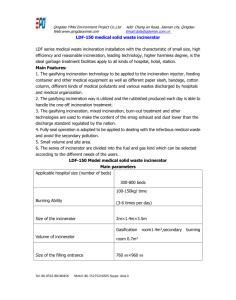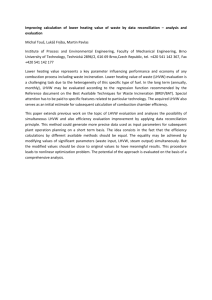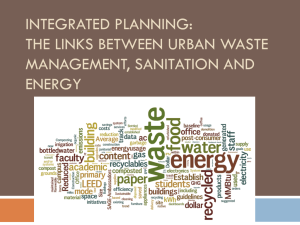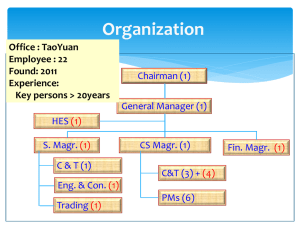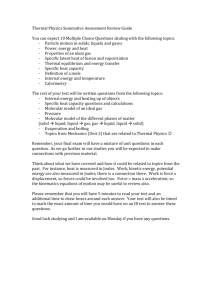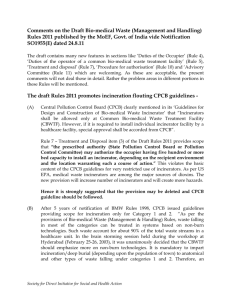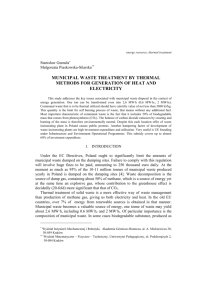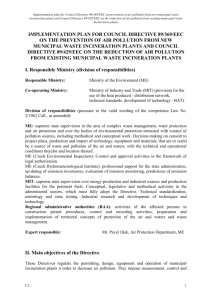Incineration Leaflet New Style
advertisement
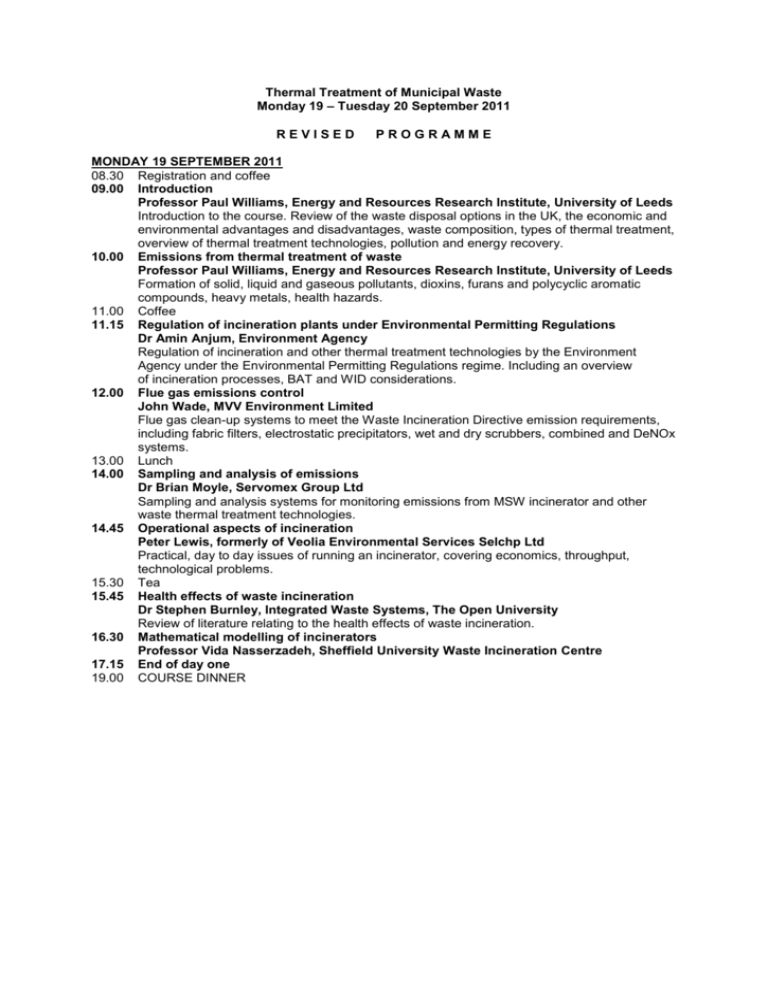
Thermal Treatment of Municipal Waste Monday 19 – Tuesday 20 September 2011 REVISED PROGRAMME MONDAY 19 SEPTEMBER 2011 08.30 Registration and coffee 09.00 Introduction Professor Paul Williams, Energy and Resources Research Institute, University of Leeds Introduction to the course. Review of the waste disposal options in the UK, the economic and environmental advantages and disadvantages, waste composition, types of thermal treatment, overview of thermal treatment technologies, pollution and energy recovery. 10.00 Emissions from thermal treatment of waste Professor Paul Williams, Energy and Resources Research Institute, University of Leeds Formation of solid, liquid and gaseous pollutants, dioxins, furans and polycyclic aromatic compounds, heavy metals, health hazards. 11.00 Coffee 11.15 Regulation of incineration plants under Environmental Permitting Regulations Dr Amin Anjum, Environment Agency Regulation of incineration and other thermal treatment technologies by the Environment Agency under the Environmental Permitting Regulations regime. Including an overview of incineration processes, BAT and WID considerations. 12.00 Flue gas emissions control John Wade, MVV Environment Limited Flue gas clean-up systems to meet the Waste Incineration Directive emission requirements, including fabric filters, electrostatic precipitators, wet and dry scrubbers, combined and DeNOx systems. 13.00 Lunch 14.00 Sampling and analysis of emissions Dr Brian Moyle, Servomex Group Ltd Sampling and analysis systems for monitoring emissions from MSW incinerator and other waste thermal treatment technologies. 14.45 Operational aspects of incineration Peter Lewis, formerly of Veolia Environmental Services Selchp Ltd Practical, day to day issues of running an incinerator, covering economics, throughput, technological problems. 15.30 Tea 15.45 Health effects of waste incineration Dr Stephen Burnley, Integrated Waste Systems, The Open University Review of literature relating to the health effects of waste incineration. 16.30 Mathematical modelling of incinerators Professor Vida Nasserzadeh, Sheffield University Waste Incineration Centre 17.15 End of day one 19.00 COURSE DINNER TUESDAY 20 SEPTEMBER 2011 08.30 Coffee 08.45 Large scale MSW incineration technologies Dr Kevin Whiting, Laing O’ Rourke plc. A review of currently used combustion technologies for the recovery of energy from MSW. 09.45 Energy recovery Paul Darley, Darley & Associates A review of equipment used to recover energy from waste incineration, and an outline of the options and systems available for generating and using heat and power. 10.45 Coffee 11.00 Pyrolysis and gasification of MSW Dr Kevin Whiting, Laing O’ Rourke plc. An overview of processes currently under development and an assessment of the commercial status of the technology. 12.00 Stakeholder and Community Consultation for Energy from Waste Paula Boyce, Projects Director, Sauce Consultancy How to conduct effective and meaningful pre-planning consultation for thermal treatment. 12.45 Lunch 13.45 Thermal Technologies – analysis, efficiency and procurement options Euston Ling, AEA Technologies High level overview of current and emerging technologies; typical criteria for technology assessments; CHP and thermal efficiencies; achieving technological credibility for procurement. 14.30 Bottom ash utilisation David York, Ballast Phoenix Ltd Getting the best from an Energy from Waste plant must include the processing and marketing of the IBA. There are important benefits and some pitfalls. 15.15 Tea 15.30 Economic and commercial issues in waste management Ian Crummack, Cobalt Energy Limited Comparative costs of landfill, incineration and other treatment technologies; impact of the landfill tax; the role of incineration in integrated waste management; the challenges of commercial development and financing. 16.15 Alternatives to thermal treatment Paul Darley, Darley & Associates Overview of other treatment technologies for municipal solid waste; MBT, autoclaving, composting, anaerobic digestion etc. 17.00 End of course
